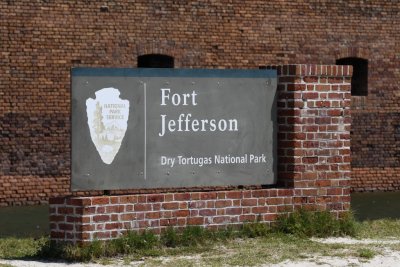 After a great breakfast of scrambled eggs, cheese grits, fruit and yogurt on the boat, we headed back to Garden Key and Ft Jefferson. |
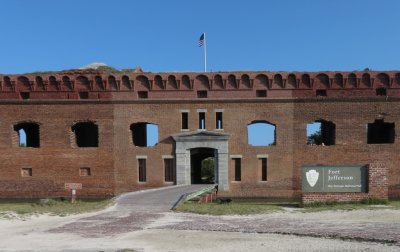 The "sally port" into Ft Jefferson |
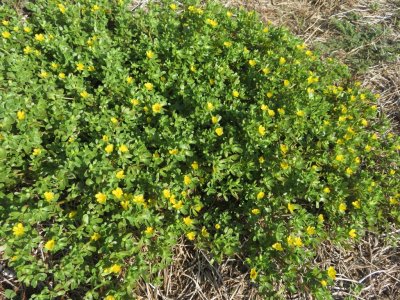 There were lots of different plants growing along the paths inside the fort, including this wildflower with tiny yellow flowers. |
 While waiting for the rest of the group, the folks in the first dinghy group went inside the fort and found a variety of birds, including this female American Redstart. |
 There was also a Yellow-billed Cuckoo in one of the Buttonwood trees. |
 And a Gray Kingbird |
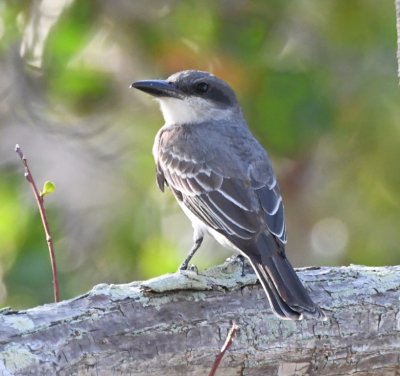 The back of the Gray Kingbird is lighter than on the Eastern Kingbird and it has no white tips on the tail feathers. |
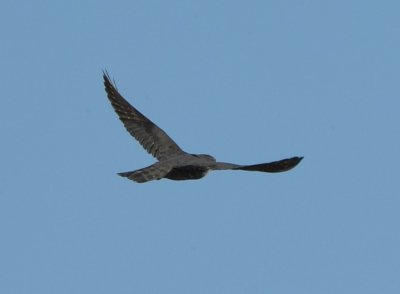 Merlin |
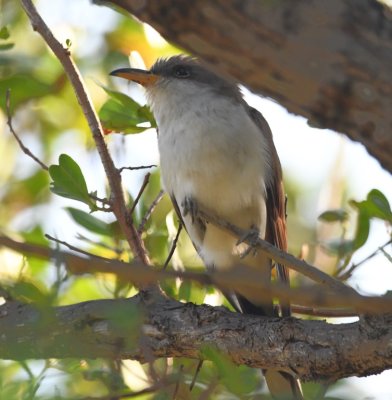 Yellow-billed Cuckoo |
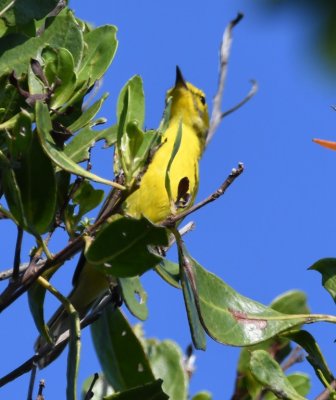 Adult male Prairie Warbler |
 Adult male Prairie Warbler |
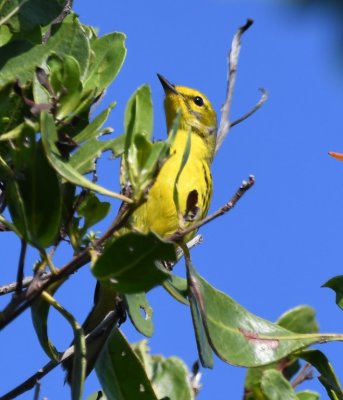 Adult male Prairie Warbler |
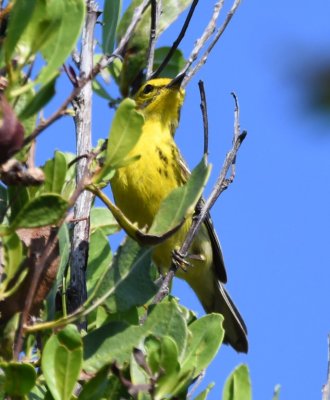 Adult male Prairie Warbler |
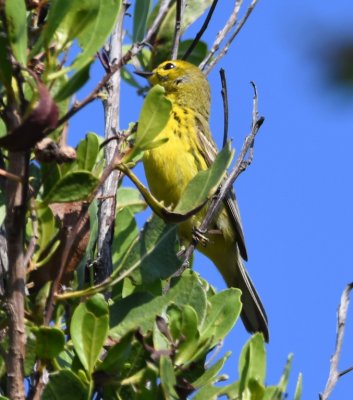 Adult male Prairie Warbler |
 Adult male Prairie Warbler |
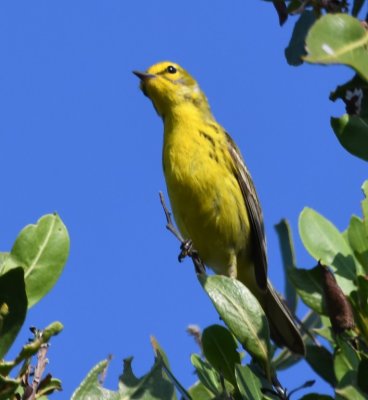 Adult male Prairie Warbler |
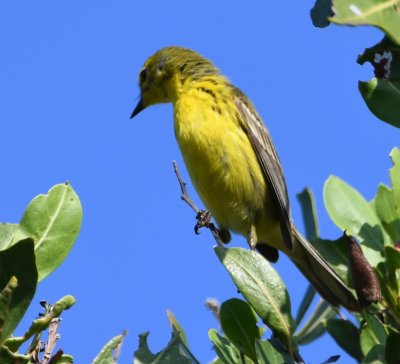 Adult male Prairie Warbler |
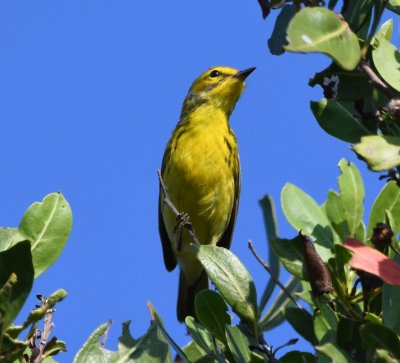 Adult male Prairie Warbler |
 After the entire group got to the fort, we walked around the interior grounds. Here we are on the SW corner of the yard, looking across the remains of the foundation of the soldiers' barracks. |
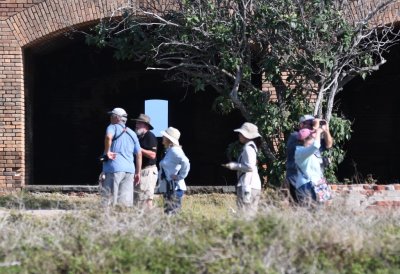 Dave, Lou, Mary T, Phoenix, Wes and Pat |
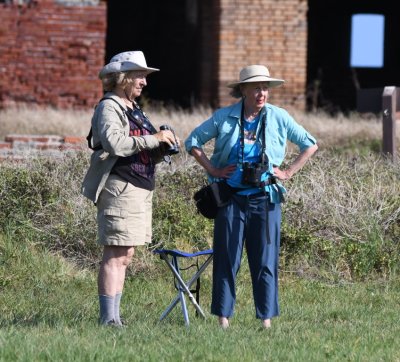 Jane and Annabel |
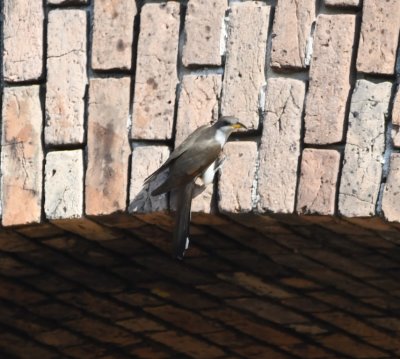 The Yellow-billed Cuckoo was all around the yard, including clinging to the bricks over one of the cannon "cubicles." |
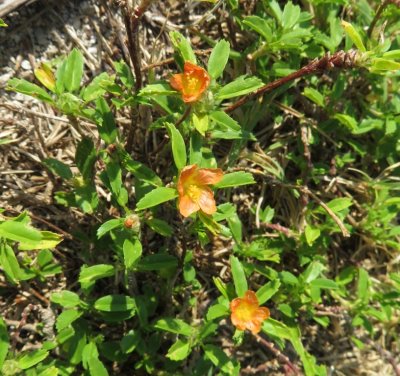 Another of the small wildflowers growing along the paths of the fort |
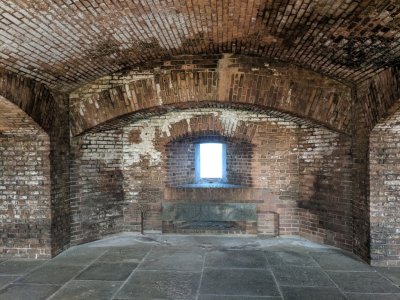 One of the portals where cannons were placed. The shutters were built to close when the cannon recoiled after firing to prevent any "blow back" coming inside. |
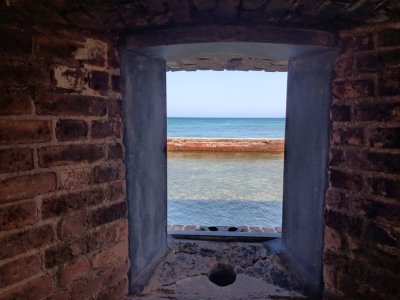 The view across the moat and the Gulf beyond |
 The re-built furnace where shot was rolled down an incline over coals to be heated before being loaded with tongs into a cannon to set targets on fire |
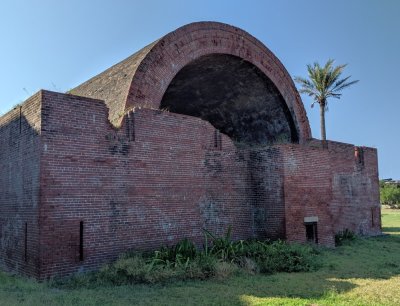 The remains of the main magazine for the fort |
 A "traverse" magazine on the top of the outer wall of the fort or "terreplein." They were used to allow storage of ammunition closer to the action. A revised design put the entrance on the inside wall for more protection. The metal braces extending away from the wall were added to support a walkway to the entrance which was not included in the original design. |
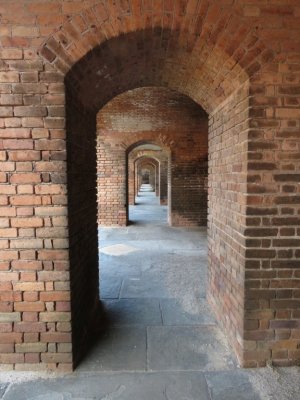 Mary took this shot of one of the long corridors around the inside of the fort. |
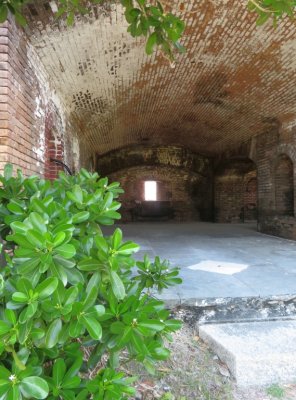 Incredible workmanship--and a lot of bricks--went into building the curved ceilings of the cannon rooms. |
 Looking out from the inside |
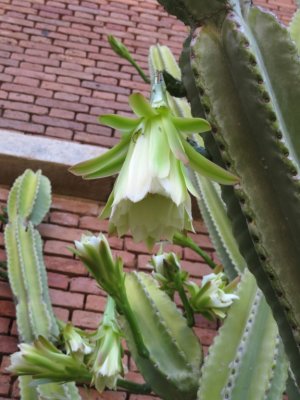 This huge night-blooming cactus was growing in the NE interior corner of the fort and was carefully surrounded by the scaffolding being used for the stabilization of the fort's lighthouse. |
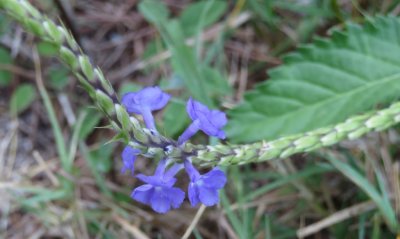 Porterweed, a blue wildflower |
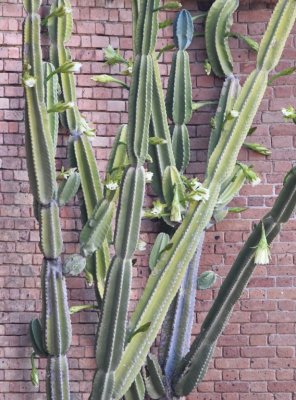 Cactus in an interior corner of the fort |
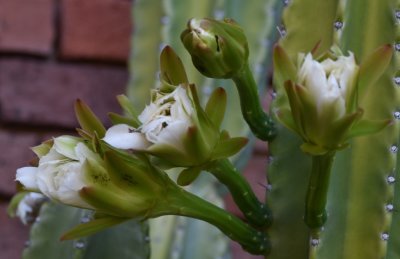 Cactus flowers |
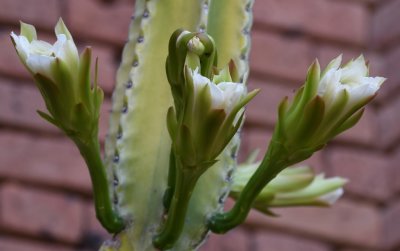 Cactus flowers |
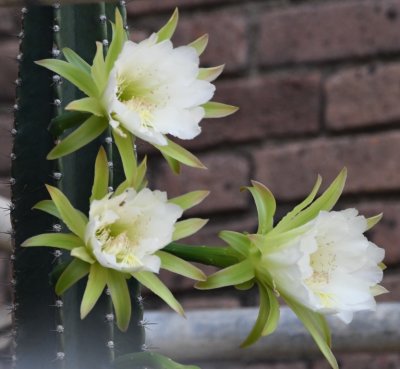 Cactus flowers |
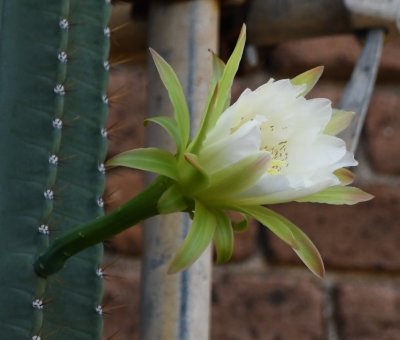 Cactus flower |
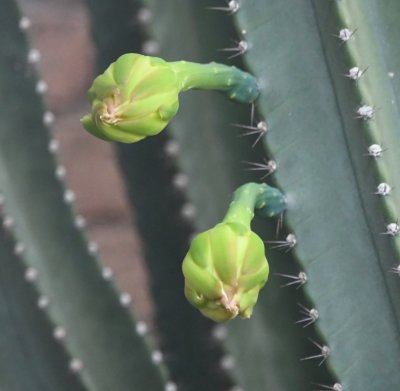 Buds of cactus flowers |
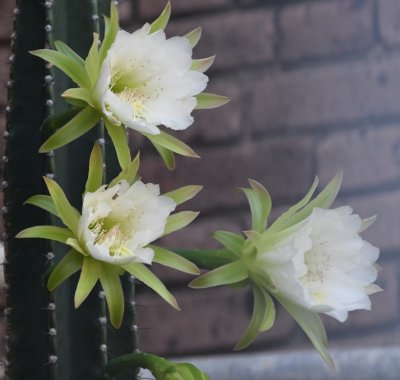 Cactus flowers |
 Cactus flower |
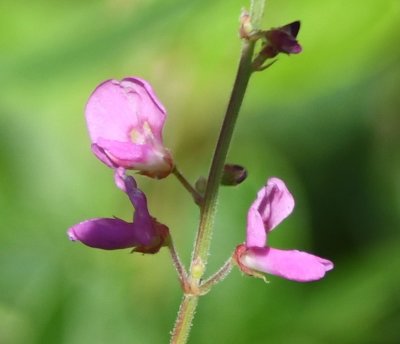 Purple wildflower |
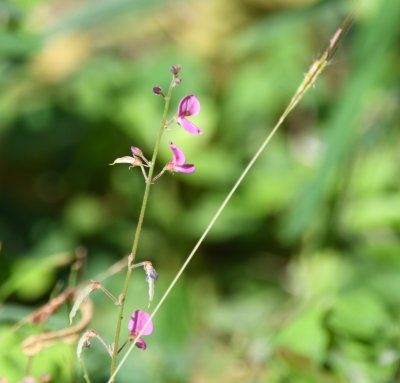 Purple wildflower |
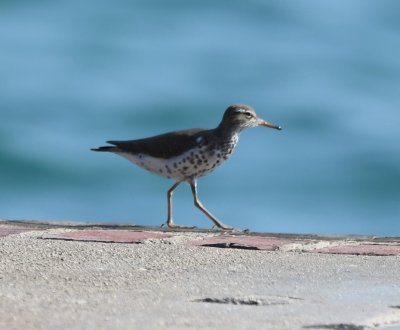 A Spotted Sandpiper along the moat wall |
 Interesting brick in the walkway inside the fort |
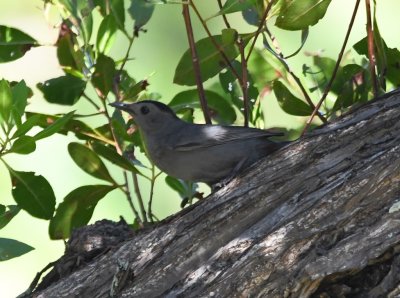 Gray Catbird |
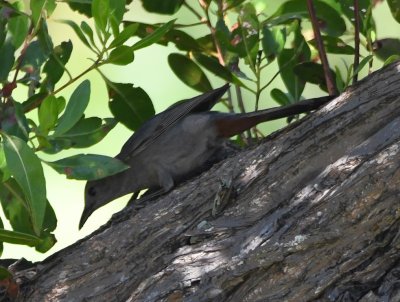 Gray Catbird |
 Nashville Warbler |
 Nashville Warbler |
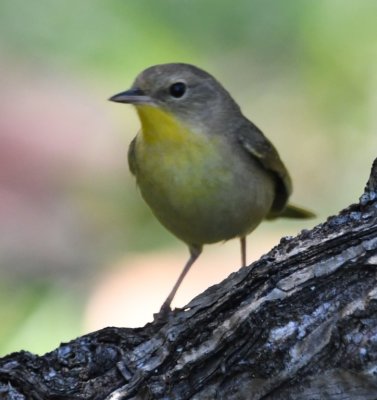 Nashville Warbler |
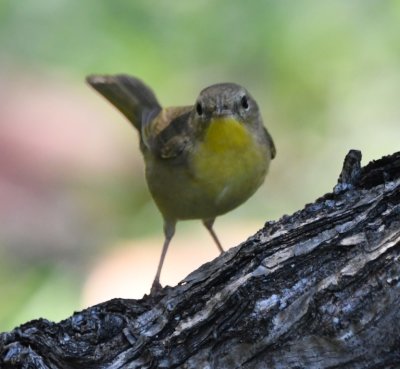 Nashville Warbler |
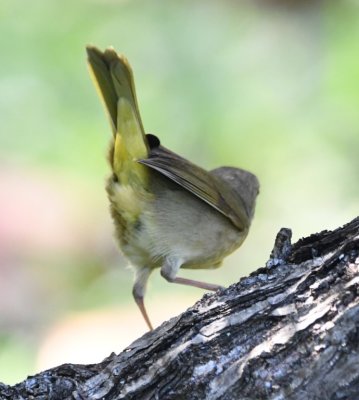 Nashville Warbler |
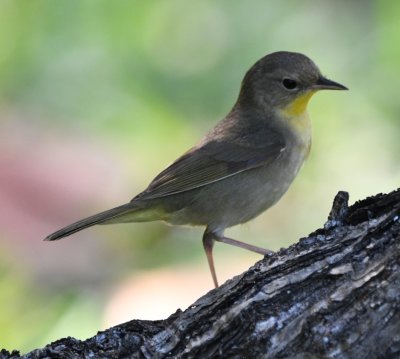 Nashville Warbler |
 Nashville Warbler |
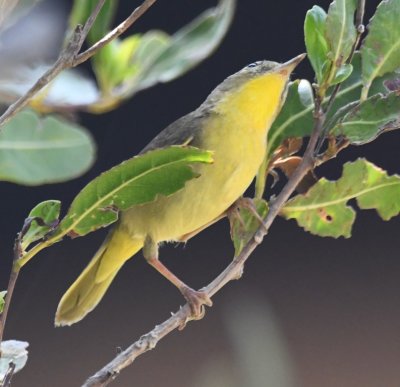 Nashville Warbler |
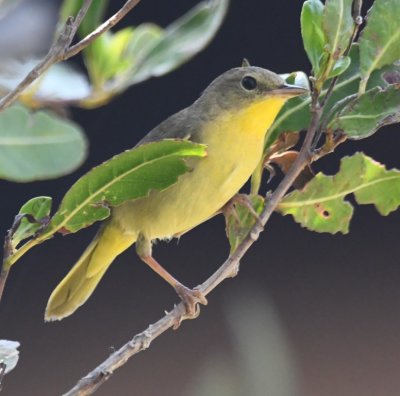 Nashville Warbler |
 Nashville Warbler |
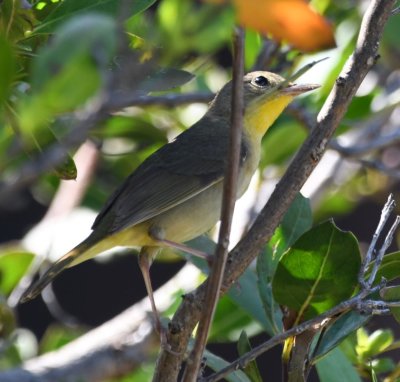 Nashville Warbler |
 Nashville Warbler |
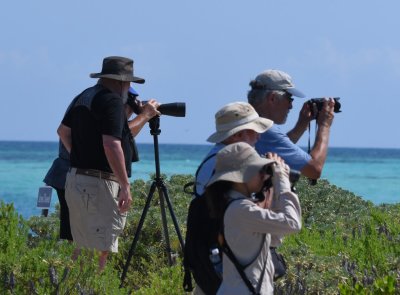 Wes and Lou scanned the birds on Bush Key with a spotting scope, trying to find a Black Noddy among the Sooty Terns and Brown Noddies, while Dave, Jane and Phoenix look for themselves. |
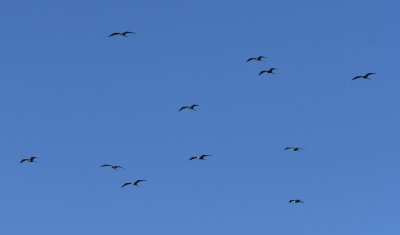 Male, female and juvenile Magnificent Frigatebirds soaring overhead |
 Brown Pelican |
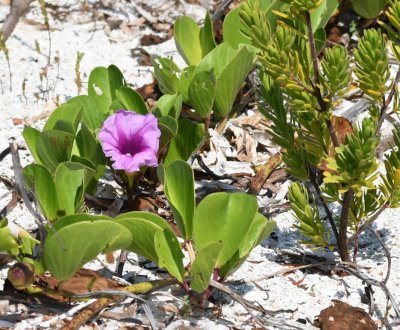 Beach petunia |
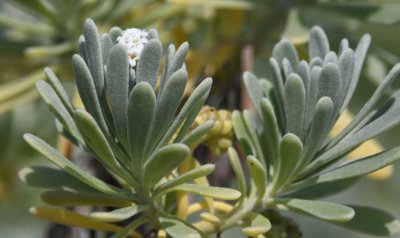 Seaside wildflower |
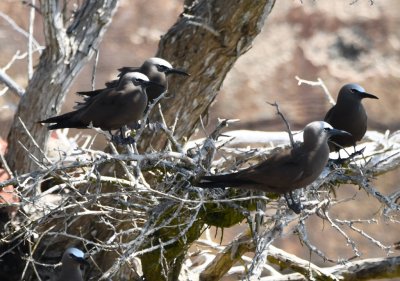 A few of the Brown Noddies found a shady spot to roost in a tree near the shore. |
 Seaside wildflower |
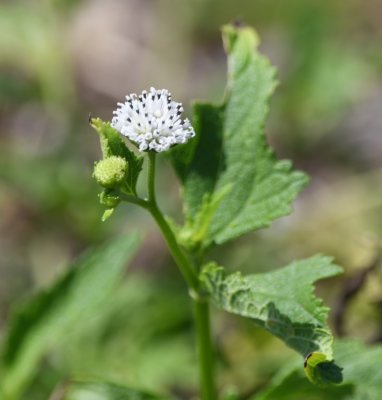 White wildflower |
 Brown Noddies on a rusty turnbuckle |
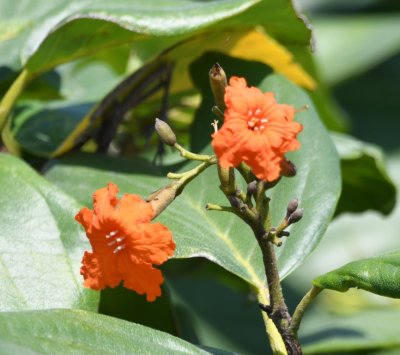 Orange wildflower |
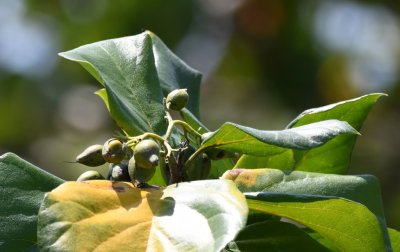 Seaside plant |
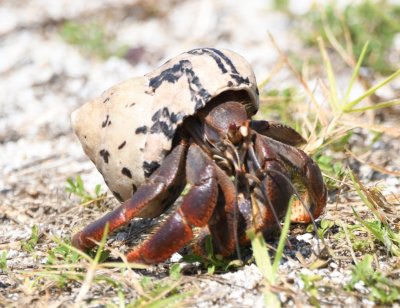 Hermit crab on the beach |
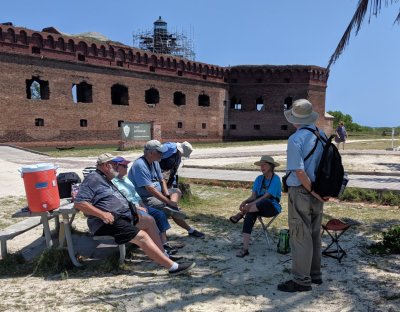 Some of the group waited in the shade with the water cooler provided by the crew of Makai: Wes, Pat, Dave, Mary, Annabel and Bill |
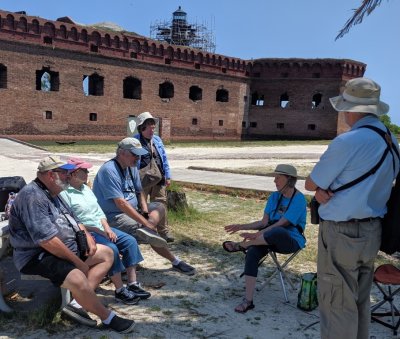 Wes, Pat, Dave, Mary, Annabel and Bill, waiting for a ride back to the boat for lunch |
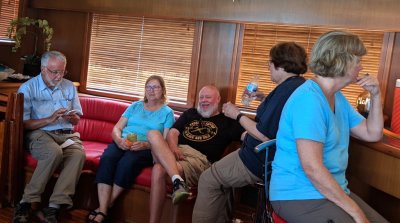 Back on the boat, Bill, Mary T, Lou, Mary L and Jan relax before lunch. |
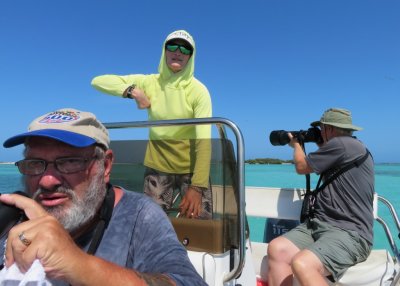 After lunch, Erica took us in three groups by Bush Key, where Brown Noddies and Sooty Terns were nesting, and Long Key, where Magnificent Frigatebirds and Brown Pelicans were nesting. |
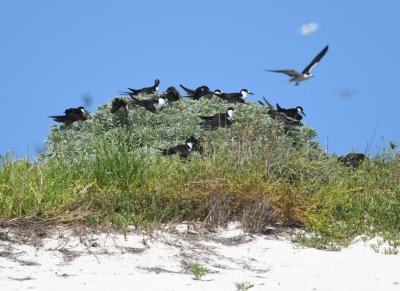 Brown Noddies and Sooty Terns on a grassy mound on the beach of Bush Key |
 Brown Noddies and Sooty Terns |
 Sooty Tern in flight |
 Sooty Tern in flight |
 Sooty Terns, with bright white on the forehead and throat, and Brown Noddies, with gray-white on the top of the head |
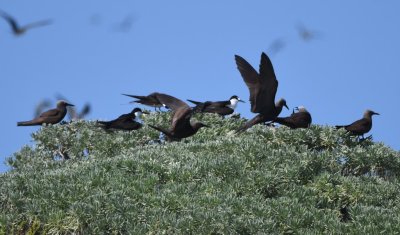 Sooty Terns and Brown Noddies |
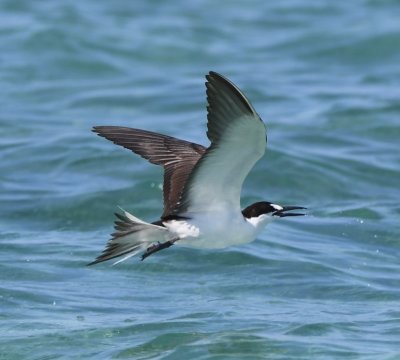 Sooty Tern in flight |
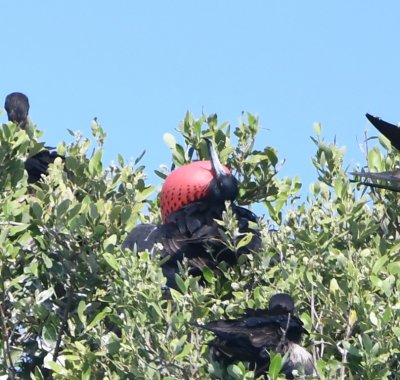 Adult Male Frigatebird inflating its red throat pouch on Long Key, Dry Tortugas, FL |
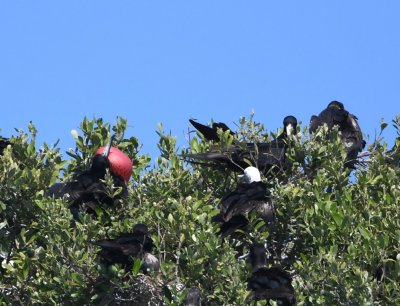 Adult Male Frigatebird inflating its red throat pouch |
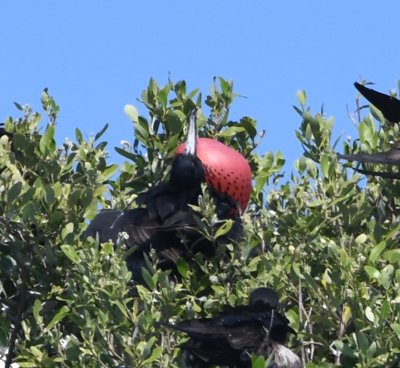 Adult Male Frigatebird inflating its red throat pouch |
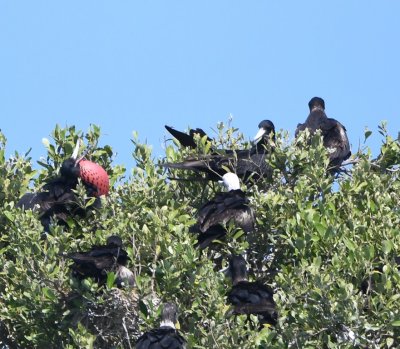 Adult Male Frigatebird inflating its red throat pouch among juvenile and female frigatebirds |
 Juvenile Magnificent Frigatebirds |
 Juvenile Magnificent Frigatebird |
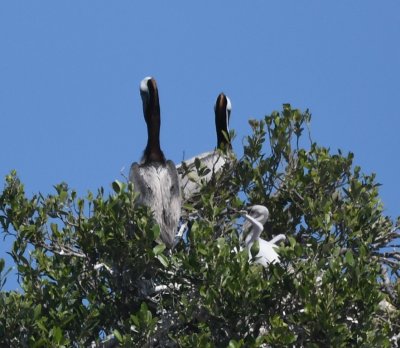 A pair of Brown Pelicans with a young one on the nest |
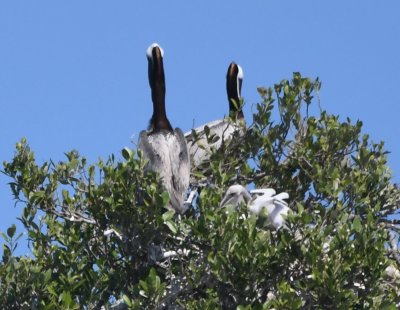 A pair of Brown Pelicans with a young one on the nest |
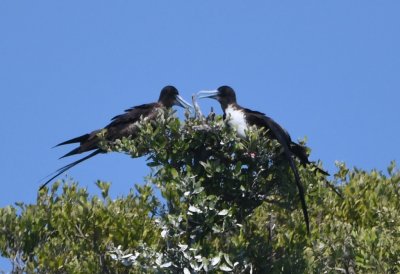 Female Magnificent Frigatebirds bill-to-bill |
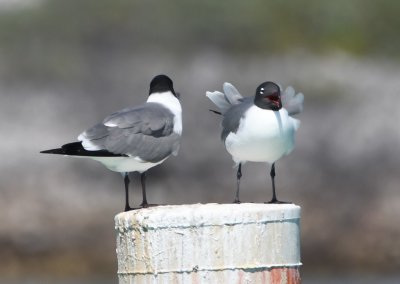 Adult Laughing Gulls |
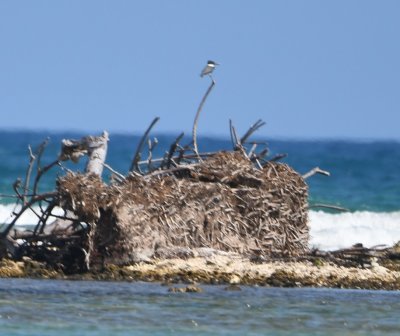 Belted Kingfisher on Long Key, Dry Tortugas, FL |
 A Laughing Gull flies in to try to snatch a treat after a Brown Pelican dives into the water off Bush Key. |
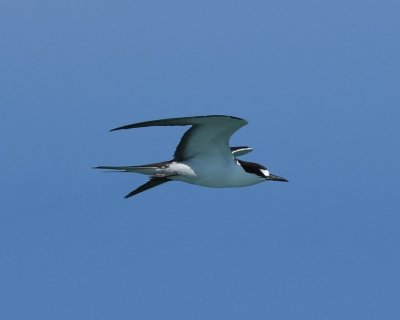 Sooty Tern in flight |
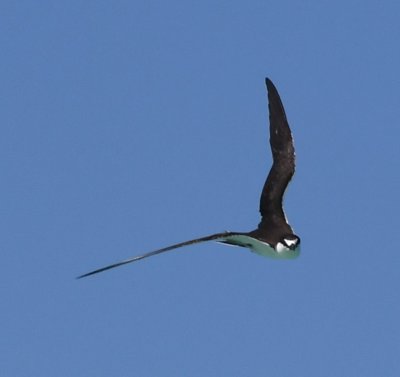 Sooty Tern making a sharp turn |
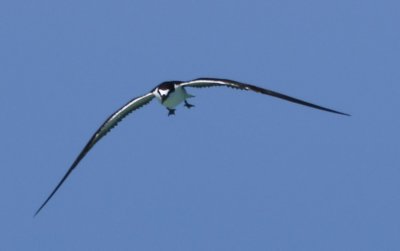 Sooty Tern |
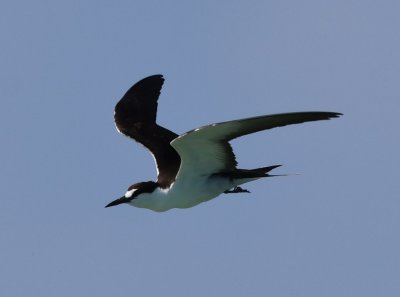 Sooty Tern in flight |
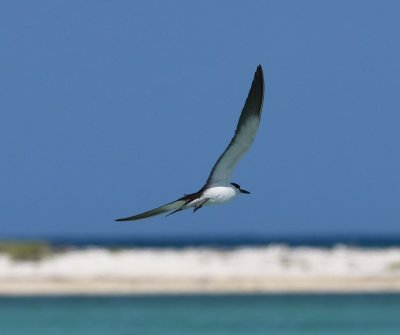 Sooty Tern |
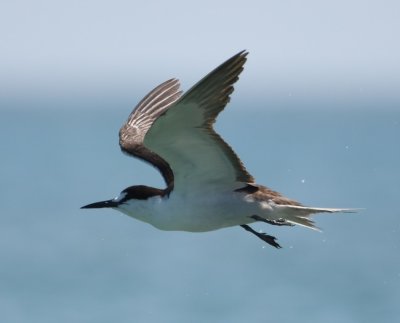 Sooty Tern |
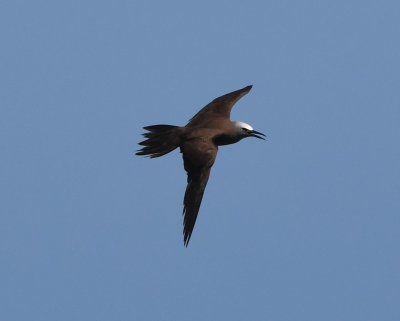 Brown Noddy in flight |
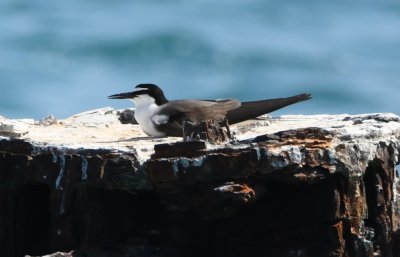 Bridled Tern resting on one of the old pier supports |
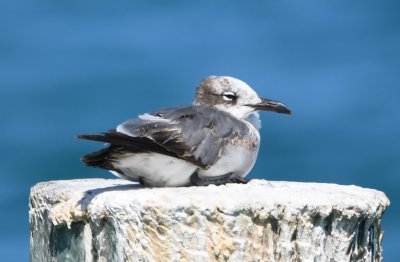 First winter Laughing Gull |
 We found this male American Redstart hanging out in the bushes near the toilets at the south end of the beach at Garden Key while we were waiting for the next part our group to arrive from the boat after lunch. |
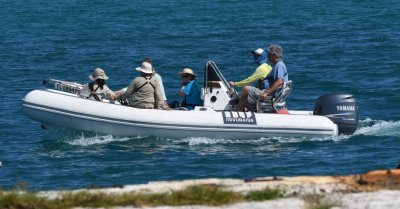 Phoenix, Jane, Pat (behind), Annabel, Erica and Dave |
 We didn't know we were visiting a nude beach. |
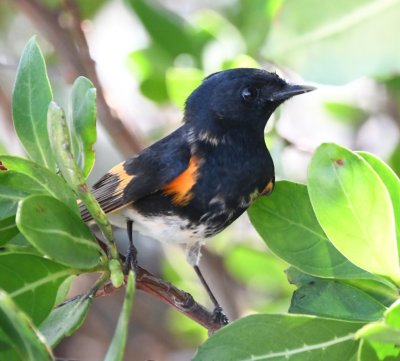 Male American Redstart |
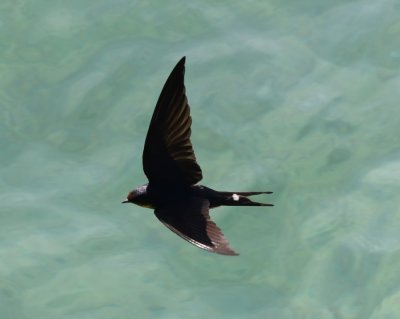 Barn Swallow swooping over the water at the S end of the key |
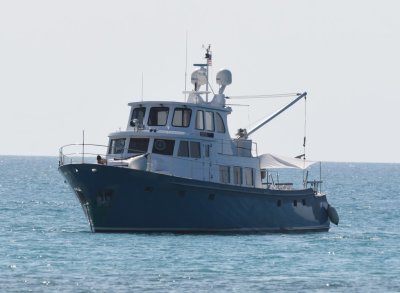 MV Makai, anchored off Garden Key, Dry Tortugas, FL |
 Loggerhead Key as seen from the S end of Garden Key |
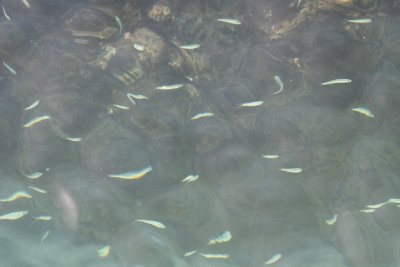 Little fish in the water of Garden Key |
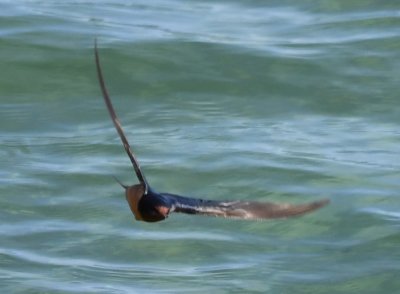 Barn Swallow |
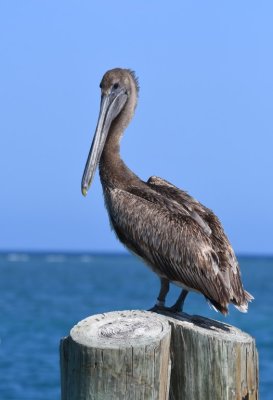 Juvenile Brown Pelican |
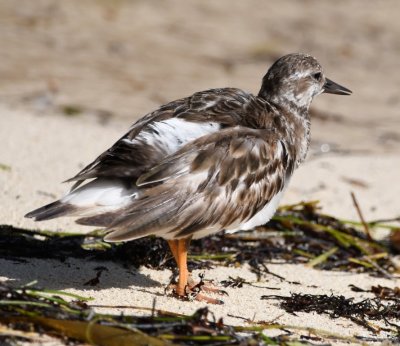 Adult nonbreeding plumage Ruddy Turnstone |
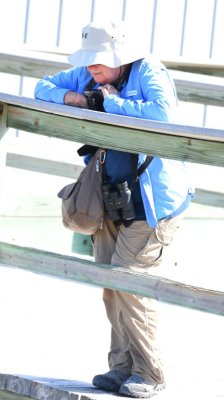 Mary, studying the turnstones from the walkway to the dock |
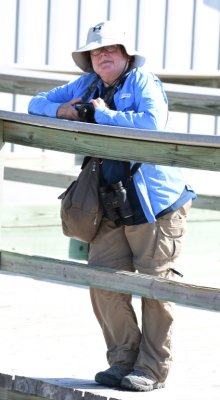 Mary |
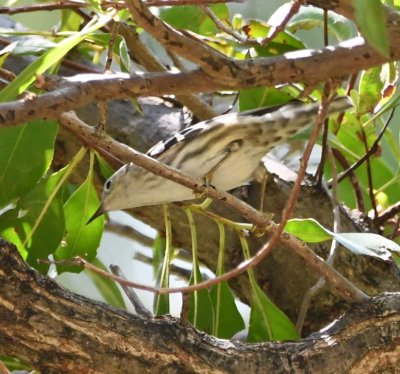 Back inside the fort, we found this female Black-and-white Warbler. |
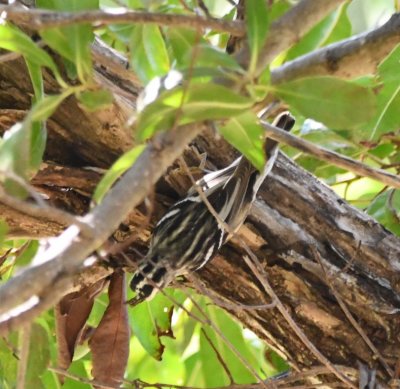 Black-and-white Warbler |
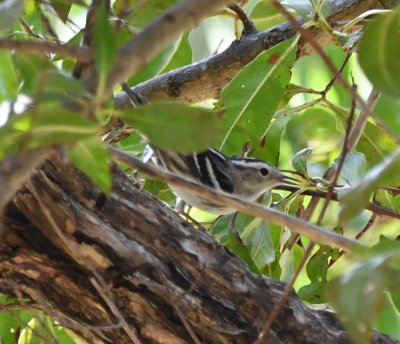 Female Black-and-white Warbler |
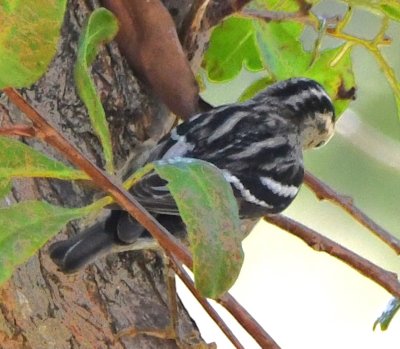 Female Black-and-white Warbler |
 Female Black-and-white Warbler |
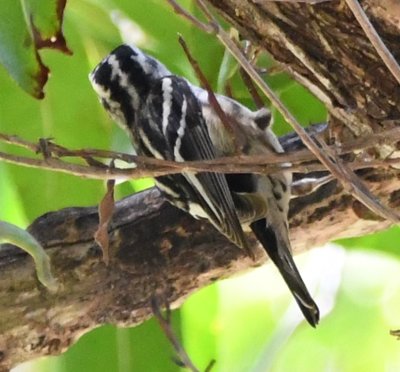 Female Black-and-white Warbler |
 Cattle Egret at the water fountain |
 Palm Warbler |
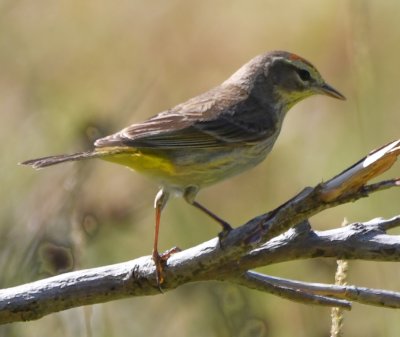 Palm Warbler |
 Palm Warbler |
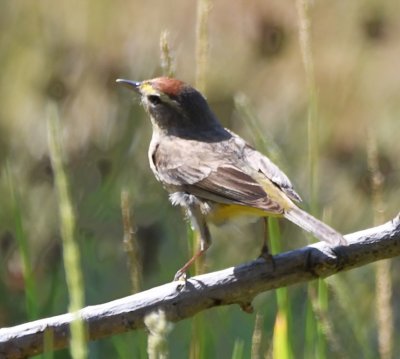 Palm Warbler |
 Black-whiskered Vireo |
 Black-whiskered Vireo |
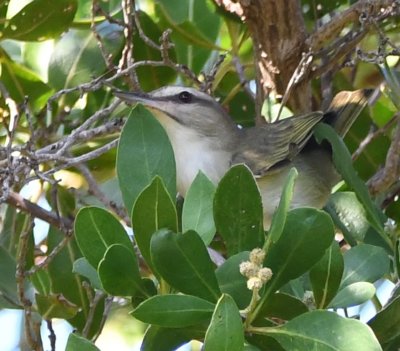 Black-whiskered Vireo |
 Black-whiskered Vireo |
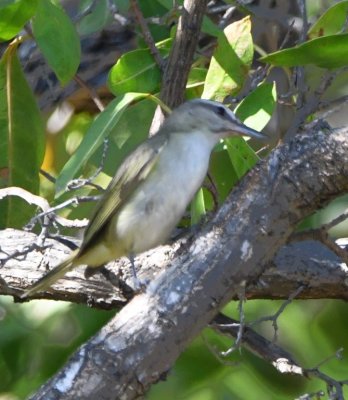 Black-whiskered Vireo |
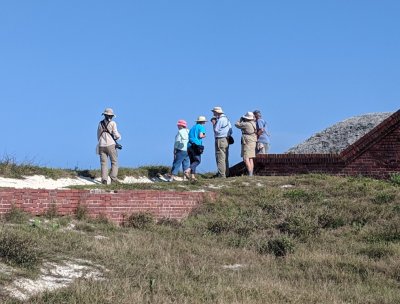 While waiting for some of the rest of the group to take their turn around the bay in the dinghy, Dave took some of us up on the top level of the Ft Jefferson wall: Phoenix, Pat, Annabel, Bill, Jane, Dave |
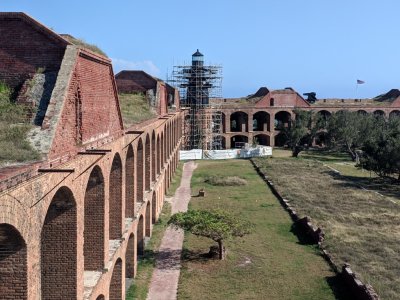 From atop the wall, we had great views of the interior of the fort. |
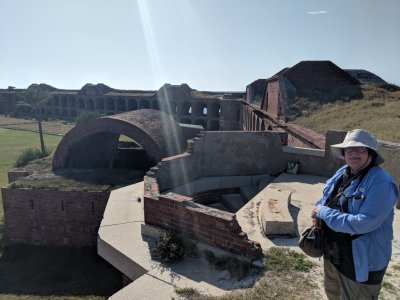 Mary, with the fort magazine, walls and yard in the background |
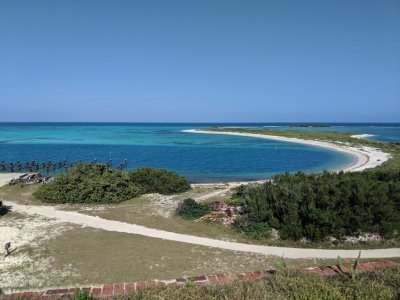 We also had great views out onto the other keys; here Bush Key extends off to the right. |
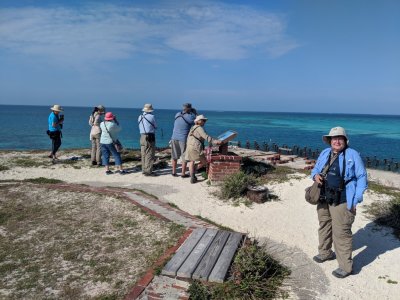 Annabel, Phoenix, Pat, Bill, Dave, Jane and Mary L |
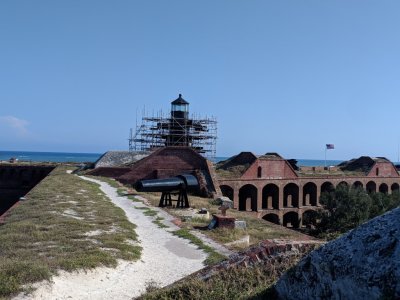 Ft Jefferson lighthouse and flag |
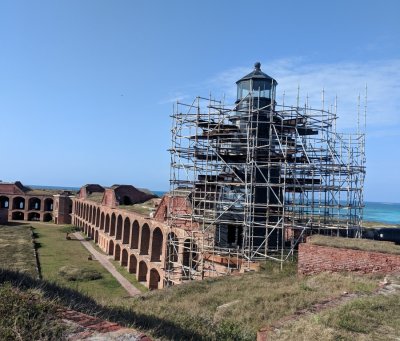 Ft Jefferson lighthouse with scaffolding |
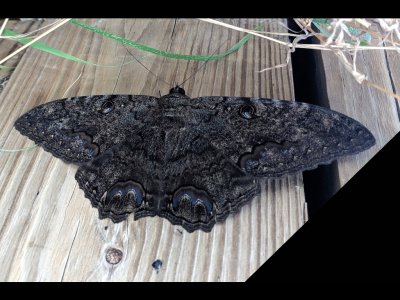 Black Witch moth, according to Wikipedia, the erebid (family) moth Ascalapha odorata, is a large bat-shaped dark-colored nocturnal moth, found from Brazil to the southern United States; it is the largest noctuid (superfamily) found in the continental US. |
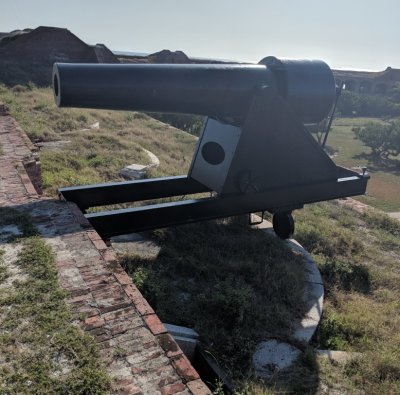 One of the over 400 10" cannons that were mounted around the fort; it sits on a granite pedestal that a wheel rolls on that allows it to be turned from side to side for aiming. The fort was never fired upon during the Civil War. |
 A view along the fort wall and into the interior yard |
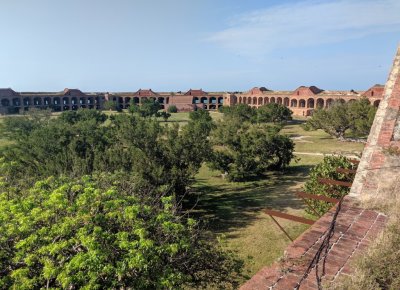 Inside Ft Jefferson |
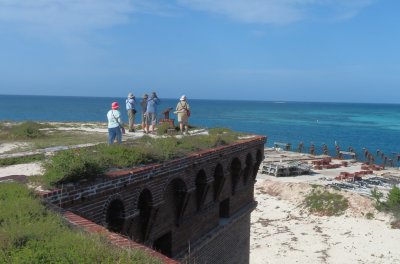 Pat, Bill, Steve, Dave and Jane look for a Bridled Tern on the old pier supports below the fort. |
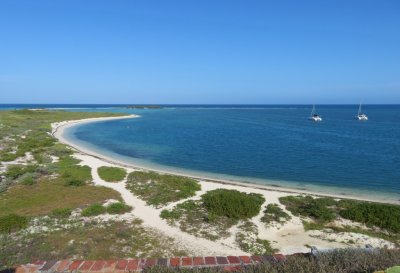 Bush Key on the right with Long Key in the distance |
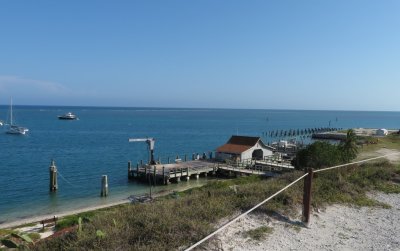 The pier where the Ft Jefferson ferry docks |
 Jan, Mary T and Lou were the last ones to get Erica's tour of the other keys. |
 Bush Key and Long Key with the Makai dinghy in between |
 Sooty Terns and Brown Noddies on Bush Key |
 Sooty Terns and Brown Noddies |
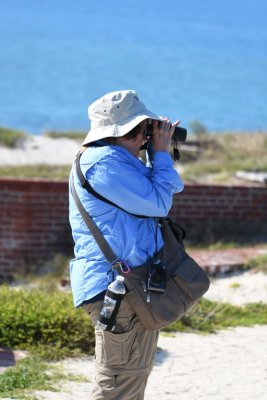 Mary L, looking for a bird from the top of the fort |
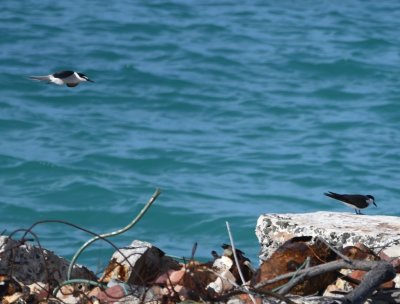 Bridled Tern flying toward a Sooty Tern on the rocks |
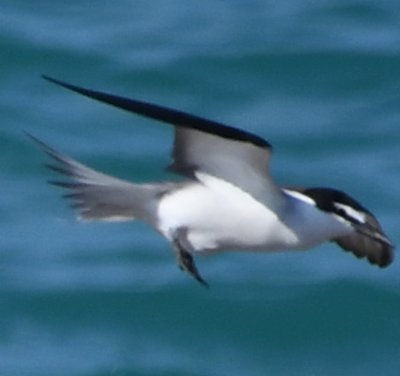 Bridled Tern in flight |
 Mary, Lou, Jan and Erica off Long Key |
 Erica, Jan, Lou and Mary T arrive at the dock after their tour of the keys. |
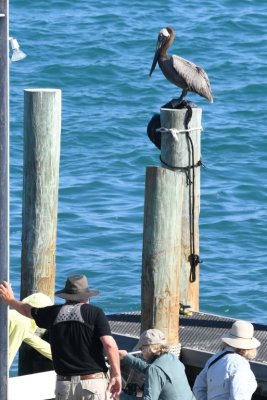 An adult Brown Pelican oversees their disembarking. |
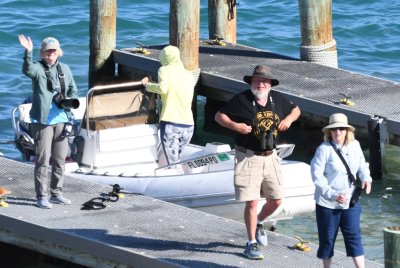 Jan, Erica, Lou and Mary T |
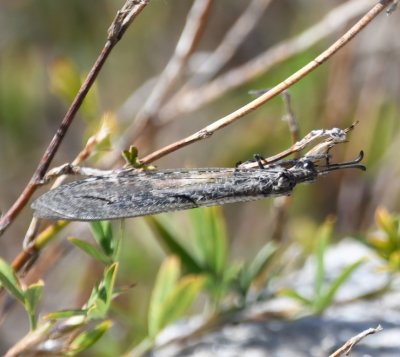 Is this a fishfly? |
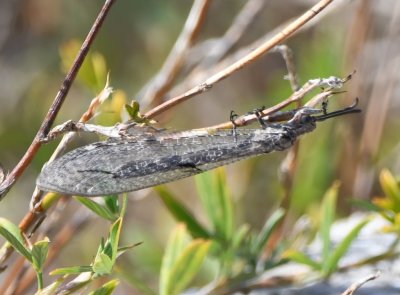 fishfly? |
 Jan made her way to the top of the fort. |
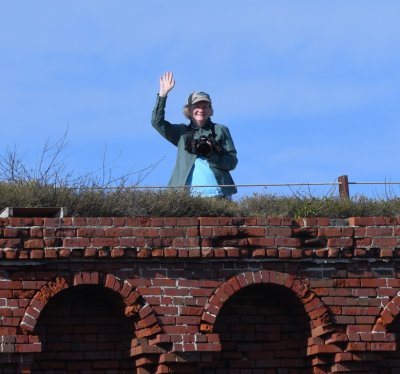 Jan waves from the top of the fort. |
 Lou and Mary T also took the rooftop tour and were buzzed by a Barn Swallow. |
 Wes took a few last looks from the top of one of the transverse magazines. |
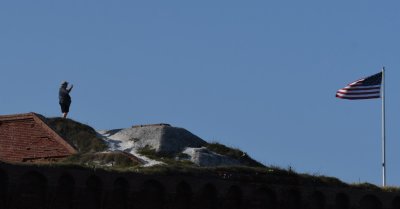 Wes looks like he's taking a photo of the flag. |
 Hermit crab in a broken shell |
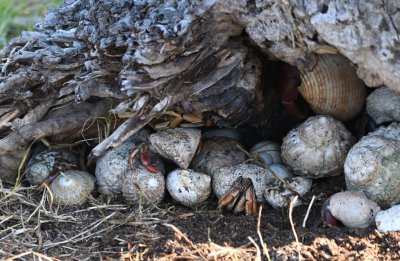 Steve found a hollow stump where a bunch of hermit crabs were gathering. |
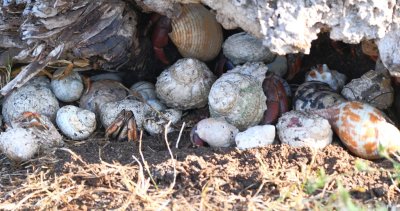 A hermit crab hostel |
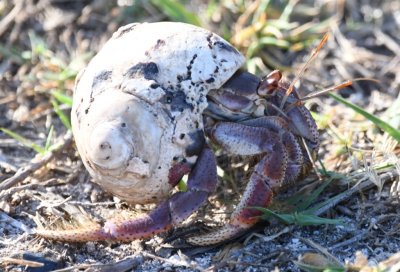 Hermit crab |
 Hermit crabs |
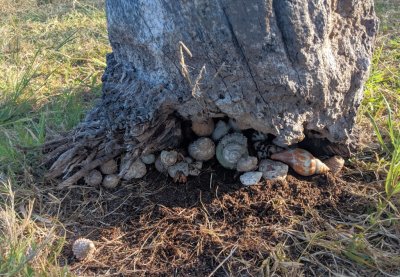 Hermit crabs |
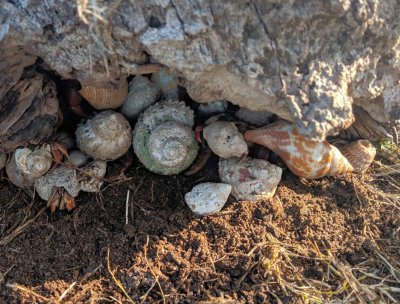 Hermit crabs |
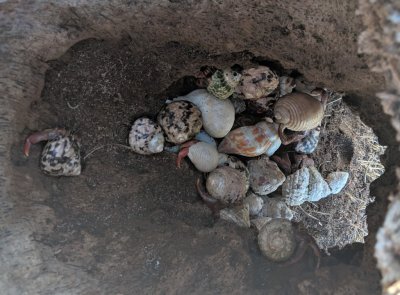 Hermit crabs |
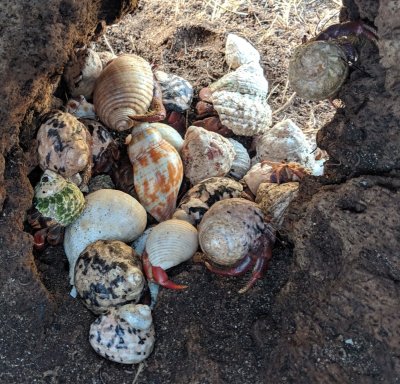 Hermit crabs |
 Back inside the fort, Phoenix looked for birds while Jan, Mary T, Lou and Dave talked. |
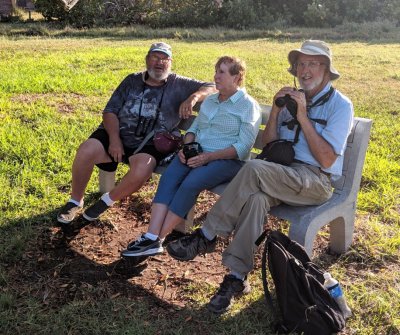 Wes, Pat and Bill waited for birds to come to the fountain. |
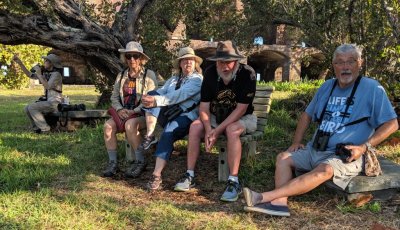 Phoenix sees a bird behind Jane, Mary T, Lou and Dave |
 Cattle Egret |
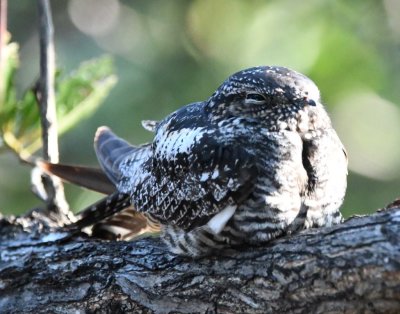 One of the campers on the beach asked some of our group if they could identify this Common Nighthawk. |
 Common Nighthawk |
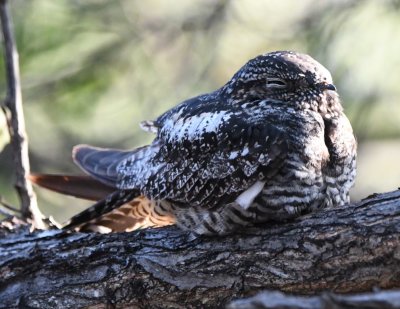 Common Nighthawk |
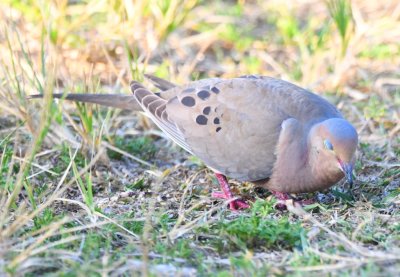 Mourning Dove |
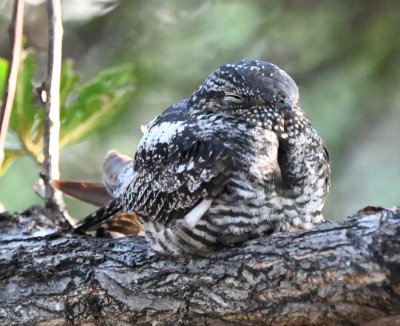 Common Nighthawk |
 Adult Brown Pelican |
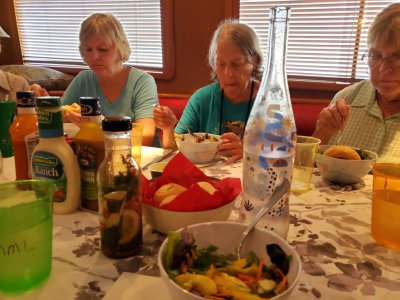 Back on the Makai, Jan, Annabel and Pat got serious about another beautiful and tasty meal, including some homemade salad dressing. |
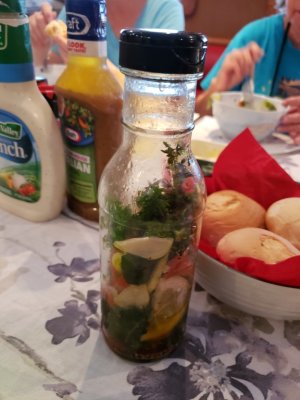 The homemade salad dressing |











